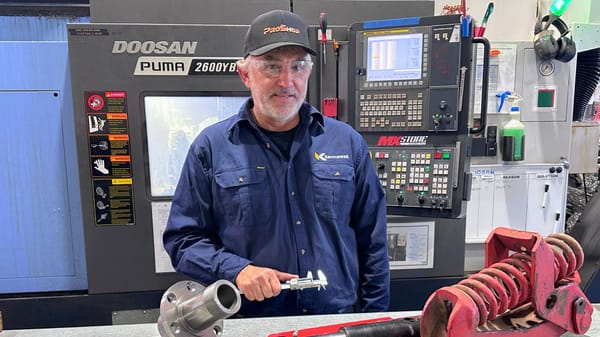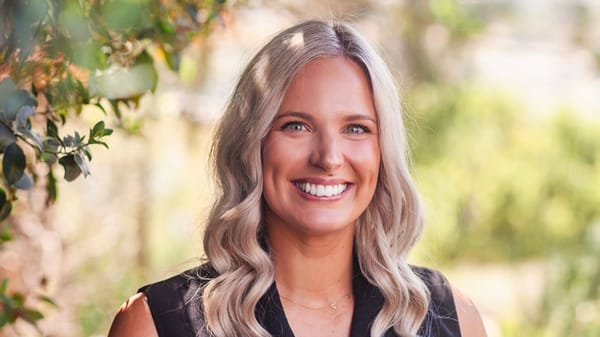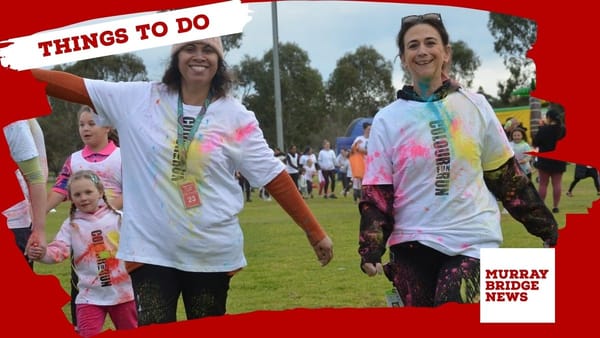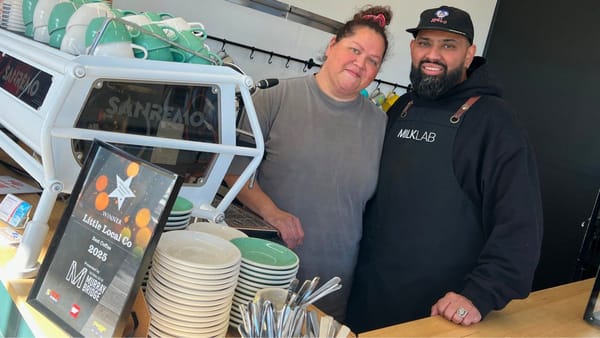Women of the LMRIA: Meet Mypolonga’s Mollie Jones
She’s the OT who fell in love with a footballer and farm boy. Together they’ve survived the floods and built a unique rural operation.

This story was contributed by Ellie Rankin.
The Lower Murray Reclaimed Irrigation Area (LMRIA) spans a stretch from Mannum to Wellington where you’ll find a mix of farming, including cropping, dairy, hay production and livestock.
In 2022, when the River Murray floods hit, farmers were confronted with difficult decisions: selling off their livestock, relocating them to higher ground, or arranging for agistment elsewhere, while watching their crops be destroyed by the rising water.
In the wake of these challenges, the women of the LMRIA came together and created a group to give each other support, all connected by their ties to farming along the Murray River.
Among them is Mollie Jones.
She and her husband Corey operate a buffalo dairy at Mypolonga.
Can you tell us a bit about yourself? What led you to your current path?
I grew up in suburban Adelaide, leading a very typical “city dwellers” lifestyle.
I attended Mercedes College and then went on to study occupational therapy at Uni SA.
All of my friends and family were located in the city and so until I met my now husband I hadn’t been past Mount Barker on the freeway.
I met Corey in 2008 when I was 18, on a night out with friends.
When I graduated uni in 2012 there was a need for more therapists in rural areas, and so I focused my job search in the Murraylands.
I was fortunate to find an OT position in Murray Bridge and have been working in the region since.
When I met Corey, he was playing footy at Sturt and finishing his carpentry apprenticeship.
The day it was completed he told me he wanted to move back to Mypolonga and start reviving his family farm that had been discussed since his parents sold their dairy cattle during the millennium drought.
This coincided with me finishing my degree, and so we made the move.
Stories create community. You can help Murray Bridge News tell our community’s stories.
Many hours were spent fencing and on the tractor restoring the Jones river flats at Mypolonga whilst Corey was working at local cow and goat dairy farms.
We purchased land on either side of his family’s farm and ran a few beef cattle whilst we were getting everything established.
One day Corey came home and said he wanted to milk buffaloes.
Being a relative newcomer to rural life, everything about farming seemed foreign and daunting to me, so the thought of buffaloes didn’t seem that overwhelming.
In 2014 we trucked our first load over from Victoria, and shortly after two more loads from a research farm in the Northern Territory.
From our initial herd of 30, we have grown to around 450 buffaloes.


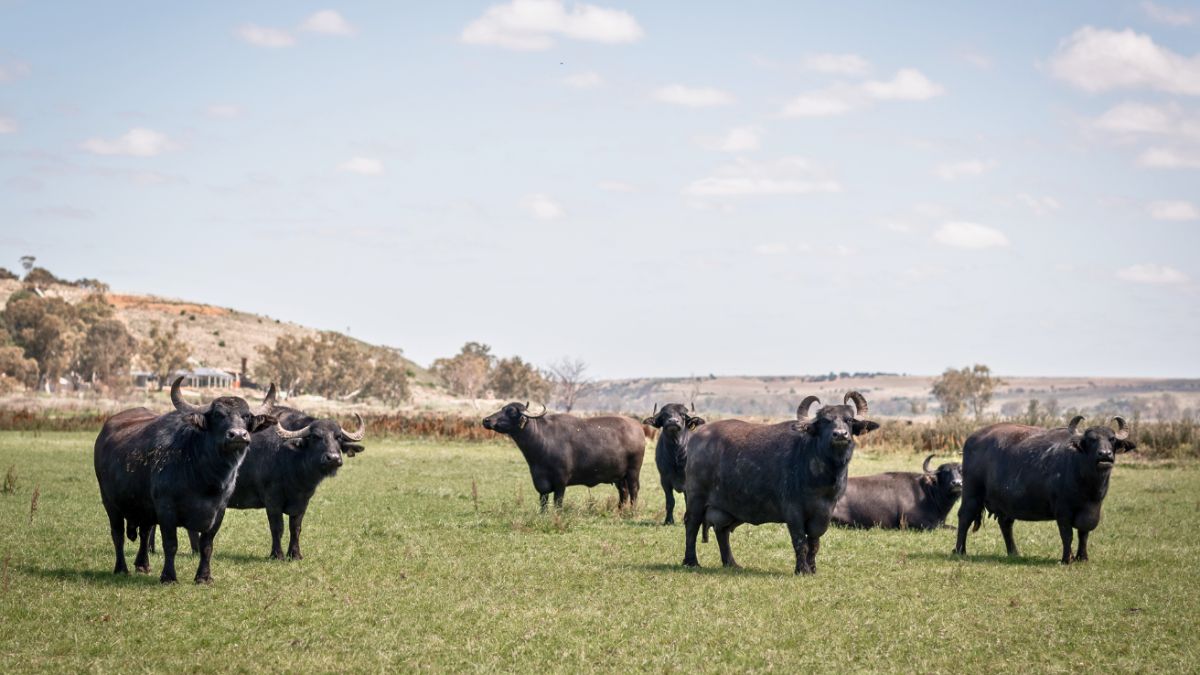
How could you not love them? Photos: Ellie Jade Photography.
How do you handle stress or difficult times in your life? What have you overcome?
Early days after purchasing the buffaloes there were a lot of people who were sceptical and didn’t think that our venture would be successful.
It was hard overcoming such adversity but Corey’s “never quit” attitude and his drive to make his family farm profitable again saw us through.
Personally, I have experienced family health concerns and bereavement, and what has helped me during these difficult times has been the open space, the freshness and the connection to the land that comes with living rurally.
Raising our three children when Corey is on the farm seven days a week and rarely home for the morning and evening routine is a struggle at times.
Connecting with other farming mums in similar situations has given me great support as it’s not a typical family dynamic and can be quite isolating.
However, the most stressful experience has been the recent 2022 flood.
This saw a complete relocation of our 450 buffs and the milking facilities.
This was a huge physical and emotional toll that lasted for 10 months and we are still undergoing the recovery process.

Can you share a moment on your journey that has been particularly meaningful to you?
Transforming a dairy and river flats that had been dormant for 10 years into a profitable buffalo dairy farm has been our greatest achievement, along with our three children of course.
Being able to raise them in a rural setting has already provided them with so many different and exciting opportunities that can only be had when living on a farm.
What is your favourite thing about being a rural woman?
My favourite thing about being a woman of the LMRIA is the sense of community and support that has been created.
During a time of immense stress, displacement and uncertainty the community rallied and supported each other and continues to do so.
What are your perspectives regarding the involvement of women in the rural industry?
I don’t work in the rural industry personally; I support our farm behind the scenes with the bookkeeping.
This is because my passions lie elsewhere in my own profession, so I don’t feel as though I can answer this question with enough insight.
However I believe, as with all aspects of life, women are vitally important.

Stories create community. You can help Murray Bridge News tell our community’s stories.

